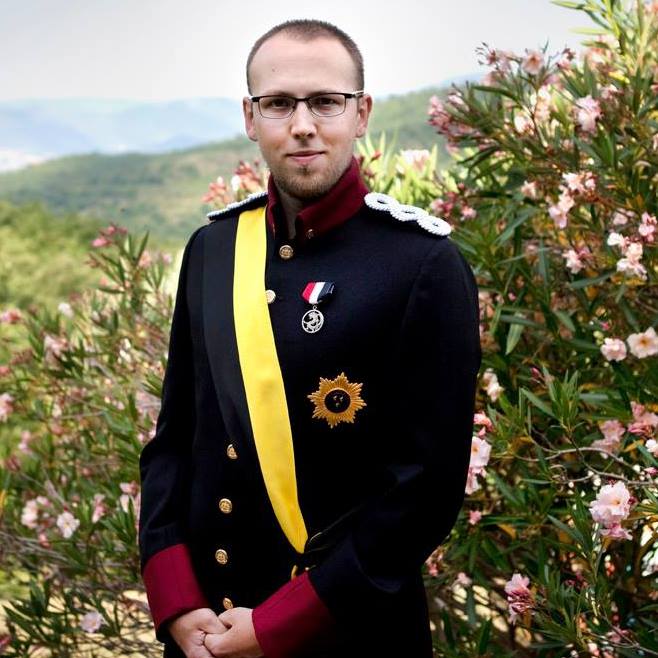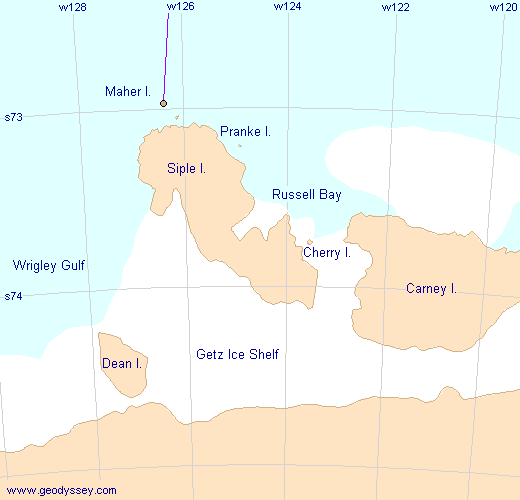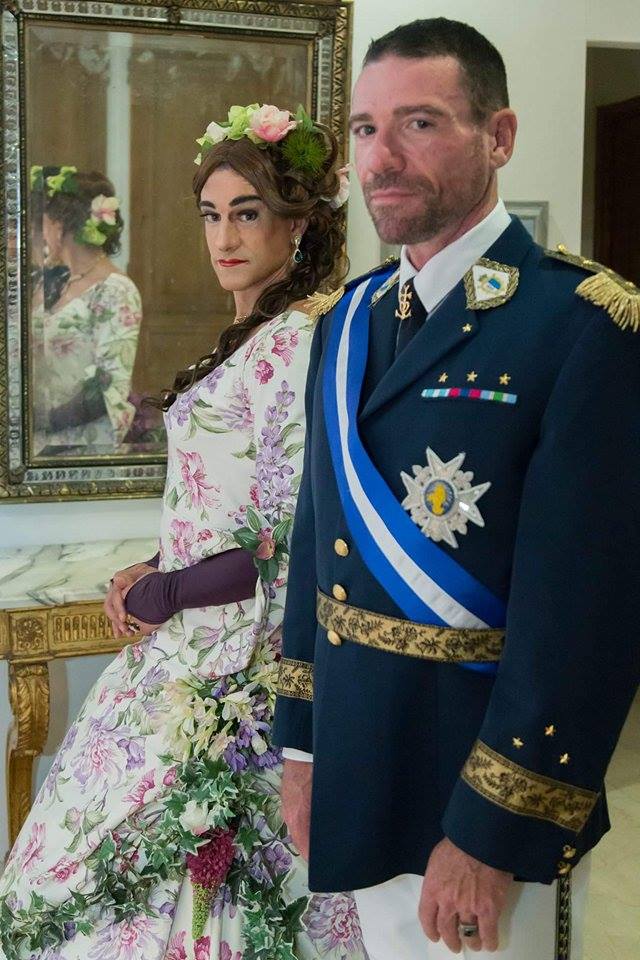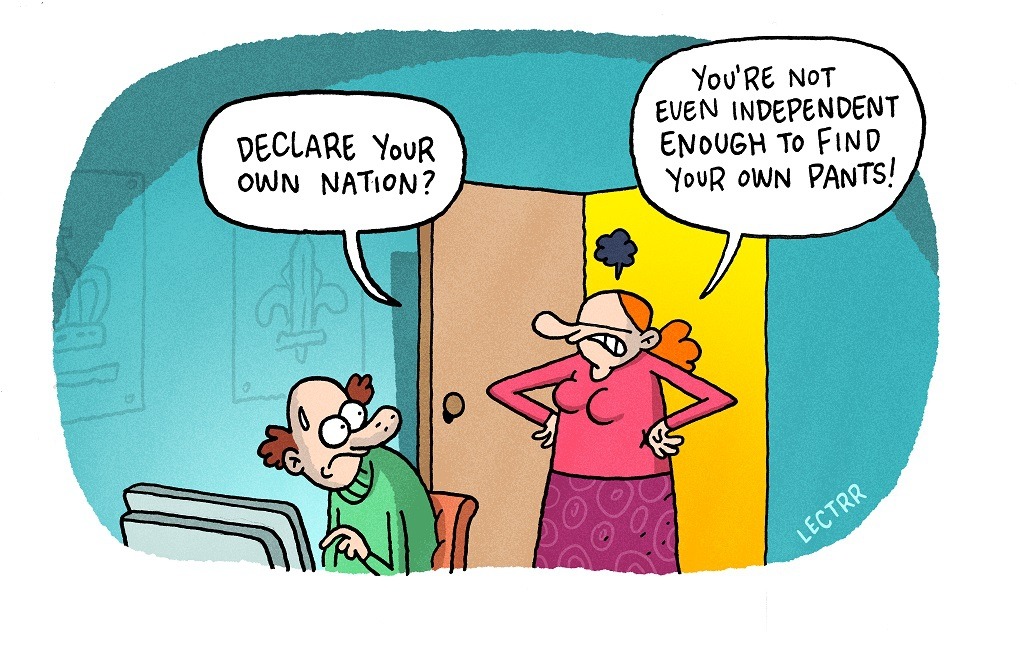A young Flemish man created his own Grand-Duchy in an Antarctic territory, and he is doing it right. Don't think it's all role playing and fancy crowns: the Grand-Duke of Flandrensis and his peers will show you how to contribute to a great cause while having a good dose of fun.
They are everywhere on the Internet, and we all think they are a joke, but imaginary countries are becoming more serious. And a young Flemish man is leading a heroic venture in bringing this new age of fantasy forward.
Somewhere near Ypres, in Flanders, lies a house like any other, except for the flag in front of it: that of the Grand-Duchy of Flandrensis. From this humble house, the self-proclaimed Grand Duke Niels Vermeersch ‘rules’ over a virtual country that far exceeds a normal hobby. In that capacity he has helped reinvent the concept of micronations.
June 2015 - two thousand kilometres away, in central Italy, under the burning sun of Umbria, in the middle of dry hills and trees, Grand-Duke Niels attended the yearly conference of micronations hosted by the Republic of Alcatraz. There, a group of “micronationalists” met with scholars and journalists. I was one of those journalists. I learned more than I expected, and as I flew back to Belgium with Niels, he, too, felt like a new age had come for Flandrensis and its diplomatic partners.
Niels started Flandrensis as a hobby during the summer vacation. In describing those first days Niels said, "I had a lot of free time before entering university, and I had heard of micronations. I created mine, inspired by the name of medieval Flanders. My friends thought it was fun and joined it. The first Flandrensis event was a bowling championship".

Niels Vermeersch, aka Grand-Duke Niels of Flandrensis. © Flandrensis
Flandrensis, its flag, its motto and the cheerful personality of its Grand Duke attracted people online and the project became so exciting that Niels decided to make it something bigger. He continued, "I wanted it to be useful. I learned of micronations proclaiming territories in Antarctica so I did it, but as an ecological venture, to raise awareness on ice melting. Flandrensis is the only country that does not want citizens on its territory".
Niels was one of the prominent guests of Alcatraz, a micronation created by Jacopo Fo, son of Nobel Prize winner for literature, Dario Fo. An ecovillage with guesthouses and rooms for events, it sports the regalia of an independent state that foster its image as a free commune.
Micronations are nothing new. For as long as the nationhood concept emerged in the late 18th century, adventurers have dreamed of their own country. Any territorial oddity, uncertain borderline, succession loophole and contested legitimacy has been explored and turned into a fake kingdom or an imaginary republic. Most were created primarily to serve the megalomaniac eccentricities of their creators. They all sought legitimacy, recognition and lost themselves in endless, nerdy arguments about what is officially a country. They were desperate to distance themselves from what they saw as marginal attempts to establish a nation. And when the Internet gave anyone the opportunity to create a professional-looking website, the older ‘states only became more pompous in their attitude of superiority.
This is now finished. If the Alcatraz conference proved one thing, it is that newer micronations no longer seek official recognition. Niels has never compared Flandrensis to a real state. Another guest, the Principalty of Aigues-Mortes, never thought of taking such a position. Alcatraz is perfectly satisfied being what it is. When my turn came to speak, I had witnessed a springtime of micronations. They became something different: no longer a dream, yet not a country. They have their own causes and visions. Instead of describing them as purported states, I offered to define them as private people mimicking the public sector: rather than using the structures offered to citizens, they use an apparatus typically associated with nations. And it gives them one more available tool to do something with their life and ‘make a difference’.

Antarctican islands claimed as Flandrensis territory. Niels forbids anyone to enter them for the sake of
ecology, making it the only country in the world that does not want any inhabitants. © Flandrensis
American anthropologist Chris Roth, from the University of Milwaukee, is a rare example of a scholar who studies micronations. Also a speaker at Alcatraz, he says of Flandrensis "it is one of the most successful micronations, probably because he chose Antarctica, which invites micronational projects. But furthermore, he took the angle of global warming, which is a very contemporary issue. Others have done a website for an Antarctica-based micronation but never as seriously. In this sense, he is leading the way".
Another (absent) micronation was also widely discussed at Alcatraz: Liberland, a purported microstate that claims a borderline oddity between Croatia and Serbia. Niels commented: “I don't want to be named in the same article as Liberland! I can't believe people say they are the real thing and we are not.” Created as a publicity stunt by libertarian Czech national Vít Jedlička, he infamously offered to host refugees if they paid him a large sum. “This is not something to joke about”, says Niels, “I receive daily requests from people in Syria who beg for a Flandrensis passport. I take the time to answer them that we are not a real country, and we don't give passports, but I can only imagine how desperate they are, which is sad and they should not be used by scammers”. Soon after Jedlička proclaimed Liberland, the Egyptian government made official warnings not to ask them for passports.
Chris Roth also commented on the change at Alcatraz: "We are definitely entering a new phase of micronationalism. First, they were born of frustration with nation-states. Then Sealand and Hutt River showed the potential for attention-getting. Now there is more of a mature approach, not looking for international recognition but to find their place in a more quiet way, evolving as international communities, or communes like Alcatraz. The Internet contributes because this is where people question the whole idea of nationhood today. They made it possible to have a group not bound by geography or nationality".
Once hailed as quasi-states, the likes of Hutt River or Sealand are now shunned as egotistic ventures that have achieved little over many decades, save for borderline scams and a good dose of pretention. Hutt River was an Australian farm claiming independence to avoid taxes and quotas. Sealand is an abandoned overseas platform used for pirate servers and selling fake titles. In a book dedicated to fake nobility scams, I had the opportunity to explore them. In Hutt River, in the middle of the scorching Australian desert, I was presented proof of their official recognition under the form of a picture of their “ambassador” next to the Governor-General: it was actually a stolen selfie taken by their “diplomat” forcefully hugging the bewildered, unsuspecting governor.
Jedlička used similar tactics countless times, prompting Niels to sarcastically comment: “for the next Open Day in the EU buildings in Brussels, I will come and take some pictures with politicians and announce on the internet that I have the support of the European Parliament...”
In contrast, Niels refuses to sell nobility titles. Like others present at Alcatraz, he gives titles as rewards. “I want to create an Order of the Melting Ice to reward those who act against global warming”, he says. In this framework, receiving a title from a micronation is no less pompous than a Masonic grade or a Rotary title: they can motivate and show appreciation, in addition to serving as another PR tool.
Niels was impressed by Aigues-Mortes, a micronation based in a small medieval town in Southern France. Two locals claimed to be a princely couple in order to give this town, which had been hit hard by the recession, a new public exposure and dynamism. Dressed as a Prince and Princess, they function as vehicle for initiatives favouring the local economy and social events to rebuild the area’s damaged social fabric. “They are a great example”, says Niels, since they established a community of people. I want Flandrensis to be like that”. The first person to join Flandrensis outside of my friends was a Dutch teenager who was inspired to study diplomacy. A micronation can give plenty of opportunities to young people.

And another micronation - done right? Under the disguise of a comical "Princess Olivia", Olivier and his
partner Jean-Pierre proclaimed a Principalty of Aigues-Mortes which positively impacted their
community. © Guy Humeau
Another rare scholar who worked on micronation spoke at the Alcatraz conference. Irina Ulrike Andel, from Austria, said that Flandrensis "shows how much young people can be active politically and raise awareness on how our lifestyle impacts Antarctica. The Alcatraz conference was a great melting pot, an exchange on greater issues, with some visionary ideas".
Roth adds "others achieved something before: in the seventies in the USA, some had an enormous effect in calling public attention to indigenous sovereignty movements. In Denmark, the Christiania micronation was a living experiment that activists could point to as an example of taking a more progressive approach to the legalization of cannabis and to gay rights: Christiania's Bøssehuset (Gay House) was ahead of its time for the 1970s."
Another French micronationalist, Olivier Touzeau, claimed the pollution vortex in the Pacific Ocean as territory of his Angyalistan Empire only to raise awareness on how to destroy them, making him the only ‘country’ in the world that seeks its own destruction.
Niels' dream is to go to Antarctica. "If he goes there, he would get huge media attention", says Roth, "Greenpeace did something similar in Chile, they proclaimed a Glacier Republic on a Chilean glacier, as part of a campaign to prevent its melting".
"Creating a micronation impacts your life a lot ", says Niels, "so think twice before you create one! It would be better to bring your talents to one that already exists". If that is your ambition, then you don’t have to travel to Antarctica: Flandrensis is near Ypres, much closer to home.
By Julien Oeuillet

